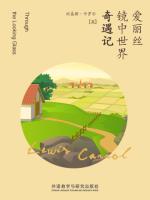comments
张欣zx
At the beginning of her dream, Alice often speaks frankly, always
interrupts, and is eager to ask many questions about the
"world", but most of the responses are unhappy, frightened,
irritable, unspoken and meaningless... Can I understand that when
children really ask questions about the world, adults perform very
badly. Later, when Alice was talking to the Fake Turtle, she finally
learned how to restrain the creepy words that her partner was an edible
lobster (although she could still play the edge ball, it was full of
humor). The rabbit in a hurry said that he had no time. This is one of
the fastest-paced existence in Alice's dream. It drives the development
of the whole story and is also the strongest suspense of the story. Who
is this rabbit and why is it in such a hurry? Is the rabbit itself the
embodiment of time? If the dream is the opposite, can we say that Alice
is not chasing time, but Alice is chased by time and can't wait to grow
up. There is also a topic about time in the story, that is, how the Mad
Hatter and the March rabbit "concocted" clocks and watches,
and had a quarrel with time and won an eternal six o'clock tea party.
The Hatter and even other characters are sad. The axis of this crazy
world seems to have nothing to do with time. Time stop means no longer
grow up. Is the sadness in the dream the ecstasy of growing up in
reality? Or deeper sorrow? Am I still me? Alice could not tell who she
was. It seemed that there was another clue in the dream, that is, how
Alice found herself. Am I still me when I grow up? It's not just Alice's
question. Where is Alice going? She doesn't know. Just get somewhere,
said the grinning Cheshire cat. Isn't it the same way you go? Growing up
is an inevitable result. The important thing is not to grow up or go
somewhere, but what we want to be when we grow up.




 京公网安备 11010802032529号
京公网安备 11010802032529号